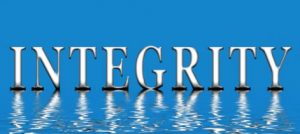
Establish a Culture of Trust
Countless management books, seminars, and programs offer insights into how leaders can develop trust within their organizations. Their consistent theme—“It begins with you”— is certainly valid, as

Countless management books, seminars, and programs offer insights into how leaders can develop trust within their organizations. Their consistent theme—“It begins with you”— is certainly valid, as

Few managers excel at optimizing their organization’s culture, but when they do, they change the game. They grow faster than their competitors, survive economic downturns,

Positive leaders have a genuinely encouraging mindset and determination to see the good in things. They continually battle negativity, model positivity and reinforce the expectation of a

If you fail to reverse lack of trust in team members, dysfunctions will intensify. Team members lose their sense of purpose. If there’s little buy-in, there’s no

Do you invest in the trust commodity? Leaders confer the highest levels of authority and trust on employees who effectively complete tasks, resolve problems and

Employees who share a spirit of camaraderie, who are enthusiastic and committed to each other, have a strong esprit de corps. They trust each other

I’ve been exploring what leaders can do to develop a culture of trust when there is a deficit in their organization—when employees fail to trust

Can you describe your work culture as one where individuals have confidence in the ability of and reliance on others to be fair, truthful, honorable

Trust in leadership is natural when leaders behave, speak and respond with integrity. I see this all the time in my work as a coach.

As a leader, do you provide praise and appreciation on a regular basis? If so, congratulations; people in your organization may find it easier to

Join Nancy as she talks with Meredith Hirsh, her client, on her podcast, Working Healthcare. Learn when to seek a therapist versus a coach and

Listening may be the most difficult skill to master when communicating effectively. But master it, we can! The non-verbal part of communicating is the most

How do you test your leadership insights? “Innovation is seeing what everybody has seen and thinking what nobody has thought.” ~ Dr. Albert, Szent-

An organization’s health is only as sound as its leader’s decisions. Some companies prosper from wise leadership directions, while others struggle after flawed choices—choices that







